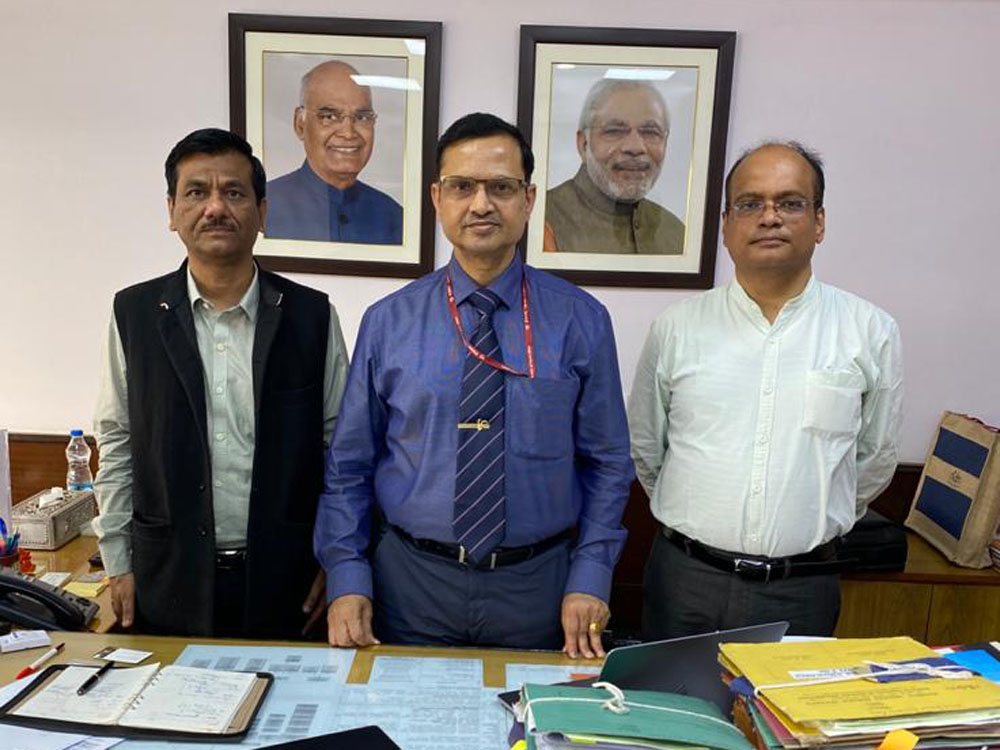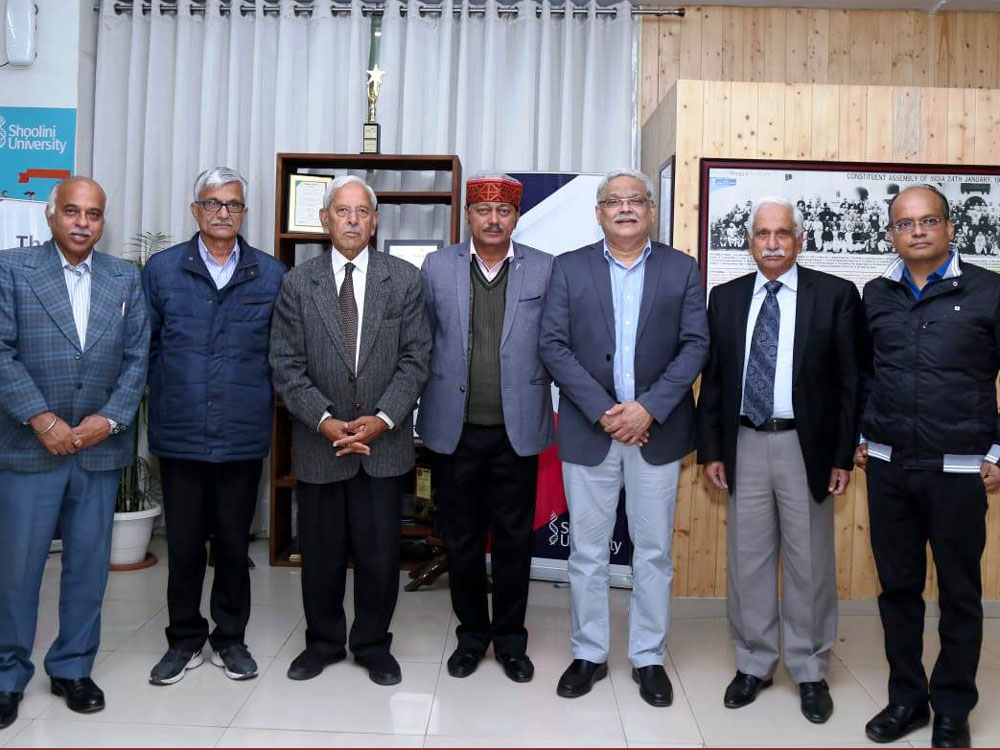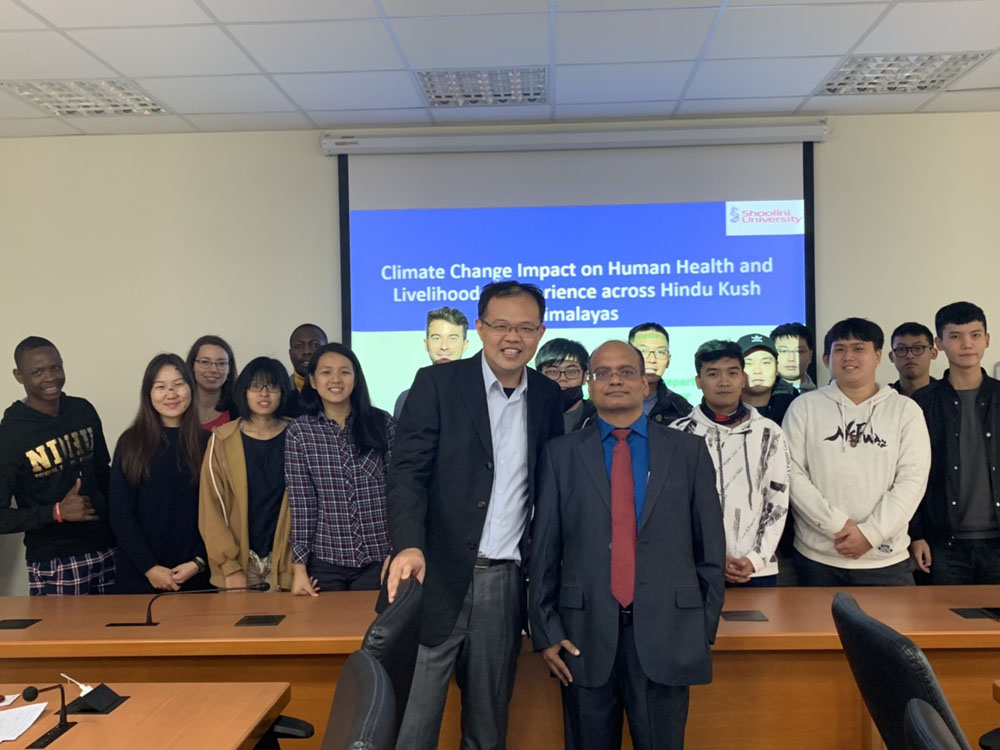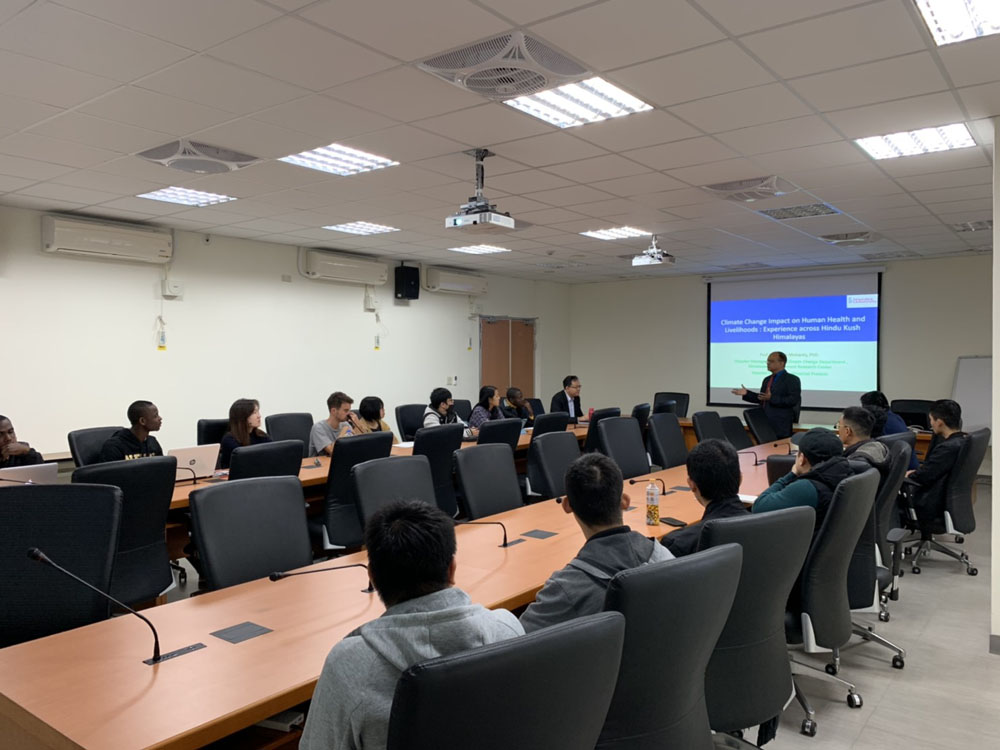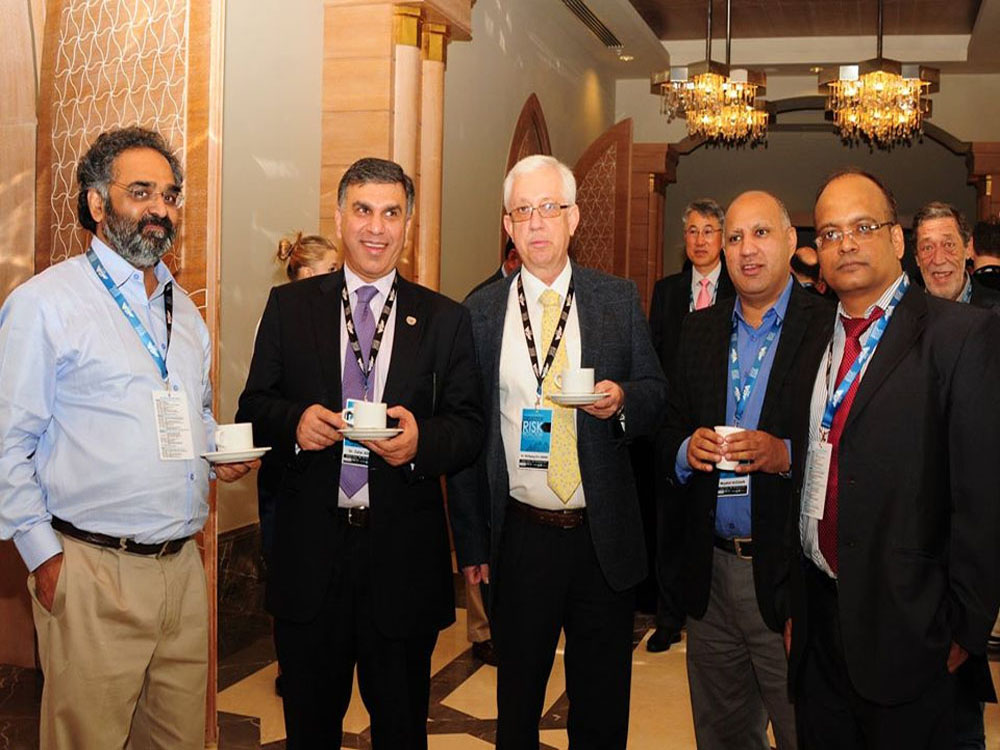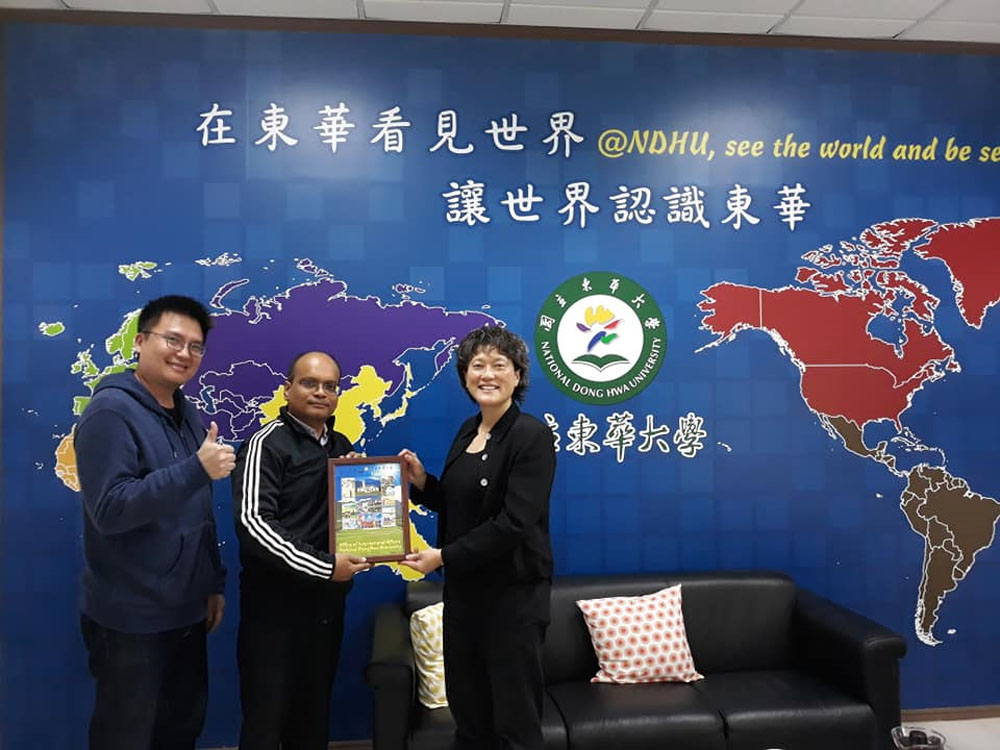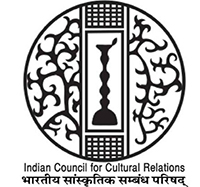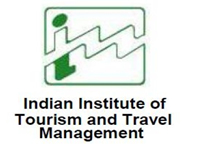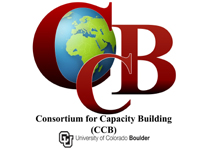When
9th -10th Dec 2022
Starting at 10am
Where
Indian Institute of Tourism and Travel Management (IITTM) (Govt. of India)
Bhubaneswar, Odisha, India
Climate change is an influencing phenomenon in present global perspective, having a wide range of impacts at different levels within the society and economy. In the past few decades’ there is evidence that is showing the extent of change of the earth’s climate. The unprecedented rate of increased global temperatures has been recorded and during 20th century highest temperature was observed in the last millennium. The increase of global average atmospheric surface temperature is related to the greenhouse effect as a consequence of enhanced emissions of greenhouse gases. Increased global temperature is just one of the consequences of the impacts of human activities on the climatic equilibrium of the planet, with modifications of precipitation patterns, droughts, storminess, ocean temperature and acidification and sea level rise etc. It is adversely affecting global development, agriculture, & food security, tourism, live & livelihood of millions of people, gender inequalities and root cause of acute and prolonged poverty. Against this harsh reality, it will be imperative to speed up the integration of climate risk considerations into policy, in order to ensure that development proceeds along pathways that are resilient to climate change. With climate change, the magnitude and frequency of stresses and shocks is changing and approaches such as social protection, Disaster Risk Reduction (DRR), Multi Hazard Early Working System (MHEWS) and Climate Change Adaptation (CCA) will be needed to bolster local resilience and supplement people's experience. To address the above issues, a closer attentions and strategic policy initiatives are required for sustainable climate resilience ecosystem.
The ‘Rio Convention’ and the adoption of the UN Framework on Climate Change (UNFCCC), set out a framework for action aimed at stabilizing atmospheric concentrations of greenhouse gases (GHGs) to avoid dangerous anthropogenic interference with the climate system. The Paris Agreement, which aims to keep a global temperature rise for this century well below 2 degrees Celsius, with the goal of driving efforts to limit the temperature rise to 1.5 degrees Celsius above pre-industrial levels. Under the Paris Agreement and the 2030 Agenda for Sustainable Development Goals (SDGs) of United Nations provides the foundation for sustainable, low-carbon, mountain and costal hazard, and resilient periodic development under a changing climate, the world has entered a new era in collective efforts on climate change, focusing on urgently increasing ambition and implementation, at all levels of government, policy initiatives, business, CSR consideration and civil society.
Many issues have been addressed through Climate Risk Reduction, Climate Resilience and Sustainable Development. The global dimension of Resilience is to provide us a platform for better fight and recover from disasters by preserving and restoring basic infrastructure and services. Resilience is the foundation of Sustainable Development. Sustainable Development, inclusive growth and UNs SDGs initiatives call for an end to poverty, a reduction in inequality, a planet that can support future generations and in long run address the core issues of climate change. For many, a warming climatic system is expected to impact the availability of basic necessities like freshwater, food security, and energy, while efforts to redress climate change, both through adaptation and mitigation, will similarly inform and shape the global development agenda. The links between climate change and sustainable development are strong. Poor and developing countries, particularly least developed countries, will be among those most adversely affected and least able to cope with the anticipated shocks to their social, economic and natural systems.

The major thrives of this congress will be discuss and develop an integrated Climate Resilience Ecosystem that will address Future Disaster Risk Reduction and Capacity Development of Vulnerable Communities for Sustainable & Inclusive Growth and Subsequently publish a White Paper that will be submitted to the Government of India and the State Government.
- Academician and Research Scholar from Universities, Institutions and Colleges.
- Corporate and Environmental Professionals.
- Humanitarian Practitioner and entrepreneur.
- Scientist and Research Organizations.
- International Organizations and its Affiliates.
- Disaster Risk Reduction & Risk Awareness
- Climate Resilience & Adaption
- Sustainable Development for Poverty Alleviation
- Sustainable Development Goals
- Climate Action for Sustainable Growth
- Climate Change& Environmental Perspectives
- Costal Vulnerability and Adaption strategies
- Ambitious Collaborative Climate Action
- Water Security and Risk Management
- Carbon footprint and Carbon Trading
- Management of Solid Waste for Sustainable Development
- Climate and Carbon Financing
- Sustainability and Inclusive Growth
- Extreme weather Events
- Sustainable Tourism
- Global Warming and Coastal Risks
- Climate Change and spreading of Viral diseases (Human Health)
- Multi hazard Early Warning Systems
- Water Resource Sustainability and Security
- Disaster Governance
- Disaster Diplomacy and Protocols
- Global Risk Management Policy Initiatives
- Environmental and Public Health
- Climate Resilient Cities
- Iceland & Coastal Vulnerability and Adaptation
- Modeling & Simulation.
- Application of GIS& RS for Integrated Disaster Risk Reduction
- Integrated Geo Hazard Management approaches for Adaptation, Mitigation and resilience
- Community Based Disaster Risk Reduction and Traditional Knowledge
- Social Justice& Equity
- Climate Change& Global Movements
- Eco and Responsible Tourism Management
- Climate Smart Agriculture
- Disaster Resilient Infrastructure
- Economic Development& Transformation
- Disaster Risk Reduction and Institutional Role
- Sustainable Agriculture and Livelihoods
- Sustainable Fashion Ecosystem
- Climate Change & Youth
- ICT Application and Early Warning Systems
- Livelihood and Social Inclusion
- Surveillance and Monitoring for Epidemics
- Institutional Capacity Development
- Role of Media and Communication
- Disaster and Migration nexus
- Disaster Policy, Governance and Administration
- Humanitarian Response in DRR
- Hunan Right and Social Protection
- Coastal Hazard and Risk Reduction
- Integrated DRR Strategic Policies and Planning
- Multi-hazard Early Warning Systems Integration
- Urbanization & Disaster Risk
- Adaption and Resilience Costal Ecosystem and Environment
- Forest fires and integrated Risk Management
- ICT Application for Climate Induced Hazard Management
- Lightning and thunderstorm Warning and Risk Reduction
- Role of GOs,NGO,INGOs for DRR
- Food Security and Livelihood
- Disaster Policy and Challenges
- Disaster Communication
- Disaster and Unsustainable Development
- Population and Climate Change
- Climate Change and Zero Waste Management
- Small Island &Developing States Risk and Vulnerability
- PPP Model for Costal and Highland Hazard Management
- Technical and Scientific Application of DRR
- Community Adoption for local knowledge for DRR
- Corporate Governance& CSR Strategies for DRR
- Disaster Impact study and Awareness
- Decentralization & Capacity Development
- Circular Economy, Tourism & Culture
- Eco-fashion, Craft Culture & Development Economy
- Textile Waste Management
- Correlation Between Air Pollution & Climate Change
- Climate Change Modules for Academia
- Last Date of Abstract Submission: July 30,2020
- Last Date of Submission of Full paper: August 30,2020
- Length of the Abstract: About 1000 words, excluding Title, Cover Page and References.
- Margin: 2.5 c.m or one Inch.
- Font: Time New Roman: 12 point.
- Space: 1.5
- Key Word: 5
- The Abstract & Complete Paper should be Submitted @ Email: ceedasia1@gmail.com
Selected Paper will be Published through Elsevier Special Edition (Scopus ) Elsevier International Journal of Disaster Risk Reduction, ISSN: 2212-4209 IJDRR941
- Foreign Delegates : USD 450
- Academicians: Rs 3000
- Research Scholars: Rs 2000
- Corporate/Executive Delegates: Rs 5000
- Students: Rs 1000
Note
- The above registration fee should be sent latest by 30th July, 2020 through NEFT/RTGS/Demand Draft/Banker’s Cheque in favor of Center of Environment & Economic Development, New Delhi, India.
- Registration fee once paid will not be returned in any circumstances.
- SARRC countries participants are consider for discount under foreign delegates fees.
- The fee includes seminar kit, breakfast, lunch, high tea, visit and participation fee.
- Registration fee can also be paid on the date of the congress.
- Bank Details: Centre for Environment and Economic Development (CEED)
Account No:62254170970
CIF No: 721118707148
IFSC No: SBIN0020970
MICR: 110002668
PAN: AAAAC9672K
- Best CEED Climate Change Award: Corporate.
- Best CEED Climate Change Award: Individual.
- Best CEED Diplomat Award.
- Best CEED Institution Award.
- International Ambassador for DRR & Humanitarian support 2020
- Bijoyini Memorial -Best CEED Social Contribution Award
Two papers shall be chosen for best Paper Award.
All paper presenter of the congress will be awarded with Certificate of Participation.
- Chair Workshop
- Round Table Discussion
- Exhibition
- Cultural Show
- Environment Awareness Campaign
- Competition
- Explore Tourism Destination
- Prof. Peter Sammonds , Director, University Collage of London, Institute for Risk and Disaster Reduction, London, UK
- Dr. Satya Sundar Tripathi, Assistant Secretary-General at United Nations(UN), New York, USA
- Dr. Pramod Kumar Mishra, IAS, Principal Secretary PMO
- Dr. Sobhan Kumar Pattanayak, IAS(Retd.), DG, Administrative Staff College, Hyderabad
- Dr. Biranchi Narayan Nanda, Principal Adviser(Secretary) Ministry of Labour & Employment, Govt. of India, PLEA, New Delhi
- Mr. S. N.Tripathi, IAS(Retd.), Director, IIPA, New Delhi
- Major General Manoj Kumar Bindal , Executive Director, National Institute of Disaster Management (NIDM), Government of India
- Col. Sanjay Srivastava , LEWS, Chairman- Climate Resilient Observing-Systems Promotion Council (CROPC), New Delhi
- Dr. Srikanta Ku Panigrahi,IISD,New Delhi
- Prof. N. Vinod Chandra Menon, Founder Member, NDMA
- Sri P.P. Shrivastav, IAS(Retd) Member NDMA Advisory Committee
- Sri Anil Kumar Sinha, IAS(Retd) Fellow ICIMOD, Former VC, BSDMA
- Dr. K.J. Ramesh, Former DG- Indian Meteorological Department and Fellow WMO
- Sri R.K. Jain, IAS, Secretary General , IRCS
- Prof. Aswini K. Mohapatra, Dean- School of International Studies, JNU, New Delhi
- Mr. Kamal Kishore, Member, NDMA, New Delhi
- Prof. Prem Kumar Khosla, Vice-Chancellor Shoolini University, HP, India
- Dr. Srikanta Mohapatra, Vice-Chancellor, Odisha State Open University (OSOU)
- Dr. Bijaya Kumar Rath, NDR, Directorate General of Hydrocarbons
- Sri. Thomas Cherian, CEO, World Vision India
- Prof. A.K.Gosain, IIT Delhi
- Dr. VS Prakash, Founder Director- KSNDMC
- Prof. S.K. Dash, CAS, IIT Delhi, President IMS
- Dr Aditi Kapoor, Regional Advisor, IFRC
- Dr. N.M. Prusty, Chairman, HAI
- Sri V.Thomas Prasad, Director , CROPC
- Sri Samam Srivastava, Director ,CROPC
- Mr Vinson Kurian, Sr Correspondent , HINDU
- Mr. Rajiv Kumar Shukla, OSD All India Radio
- Prof. Wen-Yen Chang, Director of E-TEC, Dean & Professor at NDHU
- Prof Vinod. K. Sharma, PhD., Sr. Professor Disaster Management and Environment ,IIPA, New Delhi
- Prof. Sheng lung Peng, Dean ICT & Information Technology National Dung Hua University, Taiwan
- Mr. Saroj Kumar Jha, Senior Middle East Director, World Bank Group
- Prof. Howard Chuan-Ming Liu, National Taipei University of Technology, Taiwan
- Prof. P K Joshi, Professor- School of Environmental Sciences, JNU, New Delhi
- Mr. Takesi Komino, CWS Japan
- Mr. Susan Sgorbati, Director, Center for the Advancement of Public Action, Bennington, Vermnt University, USA
- Mr. Mami Mizutori Japan, Assistant Secretary-General and Special Representative of the Secretary-General for Disaster Risk Reduction, United Nations Office for Disaster Risk Reduction (UNISDR)
- Dr Abhinay Sharma, The Hebrew University of Jerusalem, Israel
- Prof. Y.S Negi, Dean Agriculture, Shoolini University
- Prof. Francesco ferrini, Universita Degil Studi di Firenze, UNIFI, Italy
- Prof. Philip England FRS, Geology, University of Oxford, UK
- Prof. James Jackson, Department of Earth Sciences, University of Cambridge, UK
- Dr. Le Minh Nhat, Deputy Director, Department Natural Disaster Respond, VNDMA
- Mr. Sujit Mohanty, Office chief UNDRR, Cairo, Egypt
- Prof. Nitin Kumar Tripathy, Asian Institute of Technology, Thailand
- Dr. JC Gaillard, The University of Auckland, New Zealand
- Prof. Ifte Ahmed, University of Newcastle, New South Wales, Australia
- Prof. Alexander Densmore, Durham University,UK
- Mr. Sandeep Mohapatra, Senior Advocate, Supreme Court of India
- Prof. Wilkinson Suzanne, Professor, “Disaster Resilience, Management and Sustainable Development in Built Environment, Massey University, New Zealand
- Mr.Takeshi Komino, General Secretary CWS Japan
- Dr. Eklabya Sharma, Deputy Director General, ICIMOD, Nepal
- Prof. (Dr.) Xiaobin Dong. School of Natural Resources Science and Technology, Beijing Normal University
- Prof. Yuei-An Liou, National Central University, Geo Informatics Department Taiwan
- Prof.Wei-Sen Li, NCDR, Taiwan
- Prof. Merle Sowman, HOD, Department of Environmental and Geographical Science, University of Cape Town, South Africa
- Dr. Indrajit Pal, Chair, Disaster Preparedness, Mitigation and Management (DPMM), Asian Institute of Technology, Thailand
- Prof. Vishwambhar Prasad Sati, School of Earth Sciences, Mizoram University (Central), Tanhril, Aizawl
- Dr.Murataly Duishonakunov, Department of Physical Geography, Kyrgyz National University, Bishkek, Kyrgyz Republic
- Dr. Manoranjan Mishra, HOD, NRM and Geo Informatics, Khallikote University
- Prof. William P. Kittredge, Ph.D., Chiang Mai University, Thailand
- Katie Conlon, Fulbright Research Fellow- National Science Foundation, Portland State University, USA
- Dr. Zuzana Boukalova,METCENAS o.p.s.,Czech University of Life Prof. Sciences Prague; Faculty of Environmental Sciences,Czech Republic
- Dr. Pawan Kumar Bhattrai , IOE, Tribhubhan University ,Nepal
- Dr. Merle Sowman, Head of Department of Environmental and Geographical Science, University of Cape Town, South Africa
- Dr. Akhilesh Surjan, Humanitarian, Emergency and Disaster Management Studies, Charles Darwin University, Australia
- Dr. Sarat Kumar Lenka, Professor IITTM. Bhubaneswar, India
- Prof.Susan Sgorbati, Director Center for the Advancement of Public Action, Bennington College, Vermont University, USA
- Prof. Asim Zia, Vermont University, USA
- Dr. D.B.Kattel, PhD, Institute of Tibetan Plateau Research, Chinese Academy of Sciences
- Dr. Raji Sarkar, IRDR, Bhutan
- Dr. Michael H. Glantz, Director, CCB, INSTAAR ,University of Colorado, USA
- Prof. Rajib Shaw , Graduate School of Media and Governance, Keio University, Japan
- Major General Manoj Kumar Bindal , Executive Director, National Institute of Disaster Management (NIDM), Government of India.
- Mr. Garry de la Pomerai, International DRR Specialist, UK.
- Prof. Ashutosh Mohanty, Director, Disaster Management and Climate Change, Shoolini University, India.
- Dr. P. N. Rath , Director CEED, India
- Dr. Anupama Dubey Mohanty, IPE, OU Campus, Hyderabad
- Dr. Bindra Thusu,Geology Department, University Collage of London ,UK
- Prof. Gretchen Kalonji, Dean, Institute for Disaster Management and Reconstruction, Sichuan University, China
- Ms. Chanda Hada, Humphrey Fellow, Massachusetts Institute of Technology (MIT) Cambridge, Massachusetts, USA
- Mr. Ouasli Abderrahman, Chief Engineer CC, Tunisia
- Prof. Santanu Pattnaik, Central University Arunachal Pradesh
- Prof. Gulab Singh ,IIT Mumbai
- Prof.(Dr.) Surya Parkash, NIDM, New Delhi
- Prof. (Dr.) Biswajeet Pradhan ,Distinguished Professor and Director, Centre for Advanced Modeling and Geospatial Information Systems (CAMGIS), University of Technology Sydney, Australia
- Dr. Carlotta Rodriquez, Researcher, CIMA Research Foundation
- Major (Dr.) Kalpana Das, Ex- Prof. History, Ramadevi Women’s University, Ex-Honorary Secretary(IC) & Presently Honorary Treasurer IRCS-OSB
- Dr. Jawid Ahmad Baktash, Technical advisor to the Ministry of Higher Education, Afghanistan
- Prof. A. Bala Kishan, HOD, Dept. of Geography, Osmania University, Hyderabad
- Mr. Laxminarayan Nanda, UNICEF, Child Protection Specialist NE States
- Mr. Ikuo Kawauchi, Director, Business Intelligent Society of Japan
- Dr. Katie Conlon, Full Bright Fellow ,Portland University, USA
- Dr. Nghia Nguyen, Soil Science Department, College of Agriculture, Can Tho University, Vietnam
- Mr. Kunzang Wangdi (Dasho), RRAC, Bhutan
- Dr. Adyasha Das, Associate Professor, IITTM, Bhubaneswar
- Dr. B N Mishra, GM-Geo Technology, OSDMA
- Prof. Mahendra Ku. Mohanty, OUAT, Bhubaneswar
- Mr. Rudra Ch. Mohanty,UNCRD, Japan
- Dr. Indramani Jena, Sustainable Disaster Health Care Expert
- Prof. Nilanchal Patel, BIT, Mesra
- Prof. Krishnaveni Muthiah, Anna University ,Center for Water Resources, Chennai
- Dr. Aravind Kumar, India Water Foundation ,New Delhi
- Mr. Saroj Dash, Concern International Bangladesh
- Dr. Rudra Pradhan , IIT, Kharagpur
- Prof. Arup Barman, Deptt. Of Business Administration, Assam University, India
- Prof. David Purkey, Stockholm Environmental Institute, Sweden
- Mr. Animesh Prakesh, Oxfam, India
- Mr. Akshaya kumar Biswal , Oxfam, India
- Mr. Shabaz Khan, Expert - ICT Based Adaptation to Climate Change in Cities (ICT-A),Deutsche Gesellschaft für Internationale Zusammenarbeit (GIZ) GmbH
- Dr Sreeja Nair,Environmental Specialist, AKAH,Mumbai
- Dr Sarat Das, Disaster Management,TSDM,
- Mr.Bhibhuti Bhusan Garh Nayak, DRR,UNDP,Uganda
- Mr.Vikrant Mahajan, SPHERE International
- Dr. Ivan Menezes, Chairman, US IWRM
- Mr. Sachi Satpathy, Development Scientist, New Delhi
- Dr. Manoj K. Dash, Dean, Department of Economics and Management, Khallikote University, Odisha, India
- Dr. Netrananda Sahu, Department of Geography, Delhi School of Economics, University of Delhi
- Mr. Ram Tripathy, KS, New Delhi
- Dr. Sujit Kumar Pruseth,IIPA, New Delhi
- Dr. Naresh Chandra Sahu, IIT, Bhubaneswar
- Mr. Pradipta Mohanty, UNDP, Odisha
- Dr. Heena Thanki, SJPI(NICM), Gujarat, India
- Dr. Sarjue Pandita, AKGIM, India
- Dr. Santosh Tarai, NIFT, Bhubaneswar
- Dr.S.N. Biswas-Asst.Prof, IITTM, Bhubaneswar
- Mr. Prasanth Uday Kumar- Asst. Prof, IITTM, Bhubaneswar
- Dr.B. Swajan- Asst. Prof, IITTM, Bhubaneswar
- Mrs.Sareeta Pradhan- Asst. Prof, IITTM, Bhubaneswar
- Mrs. Shresthashree Swain, University of Calcutta
- Dr.S.Tufailur Rehman, Dept. of Disaster Management, Odisha State Open University, Odisha
- Ms.Tamanna Mehta, Shoolini University
- Ms. Supriya Nayak (International Coordination), University of Sheffield UK
- Mr. Siddharth Kumar, IIT, Bhubaneswar
- Mr. Pushp Kumar, IIT, Bhubaneswar
Congress Chair & Co-Chair
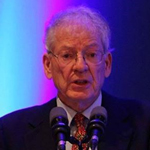
Dr. Michael H. Glantz
Director, CCB, INSTAAR, University of Colorado, USA
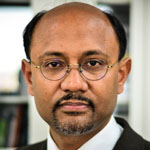
Prof. Rajib Shaw
Graduate School of Media and Governance, Keio University, Japan
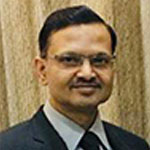
Major General Manoj Kumar Bindal
Executive Director, National Institute of Disaster Management (NIDM), Government of India
Congress Convener & Co-Convener

Mr. Garry de la Pomerai
International DRR Specialist, UK.
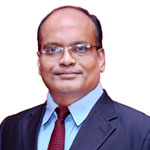
Prof. Ashutosh Mohanty
Director, Disaster Management and Climate Change, Shoolini University, India.
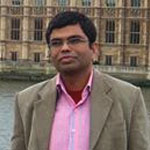
Dr. P. N. Rath
Director CEED, India

Dr. Anupama Dubey Mohanty
IPE, OU Campus, Hyderabad
Conference Leaders

Col Sanjay Srivastava
Chairman, Climate Resilient Observing-Systems Promotion Council (CROPC)
Convener, Lightning Resilient India Campaign (CROPC- IMD, MoES, GoI Initiative)
General Manager - National Seismic Risk Mitigation Programme (NSRMP) - A World Bank- GoI(NDMA) project
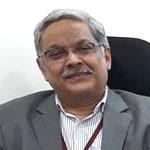
Dr. Biranchi Nanda
Secretary -Labour and Employment, Government of India
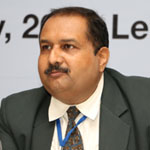
Dr. Srikanta K. Panigrahi
Director General, Indian Institute of Sustainable Development (IISD), New Delhi

Dr. Shobhana K Pattanayak, IAS (Retd)
Director General, Administrative Staff College of India (ASCI)

Dr. Bijayakumar Rath
ONGC, India
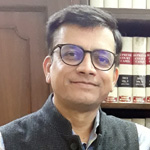
Mr. Sandeep Mahapatra
Advocate Supreme Court ,India
Our Gallery
Delegate Fee
Foreign Delegates : USD 450
Academicians: Rs 3000
Research Scholars: Rs 2000
Corporate/Executive Delegates: Rs 5000
Students: Rs 1000
 Download Registration Form
Download Registration Form
Payment Details
Centre for Environment and Economic Development (CEED)
Account No : 62254170970
CIF No: 721118707148
IFSC No: SBIN0020970
MICR: 110002668
PAN: AAAAC9672K
- The above registration fee should be sent latest by 30th July, 2020 through NEFT/RTGS/Demand Draft/Banker’s Cheque in favor of Center of Environment & Economic Development, New Delhi, India.
- Registration fee once paid will not be returned in any circumstances.
- The fee includes seminar kit, breakfast, lunch, high tea and participation fee.
- Registration fee can also be paid on the date of the congress.
Organizer
Center of Environment & Economic Development (CEED)
Associate Partner
National Institute of Disaster Management (NIDM), Ministry of Home Affairs, Government of India, New Delhi
Know More >>Supported By
Cultural Partner
Knowledge Partner




